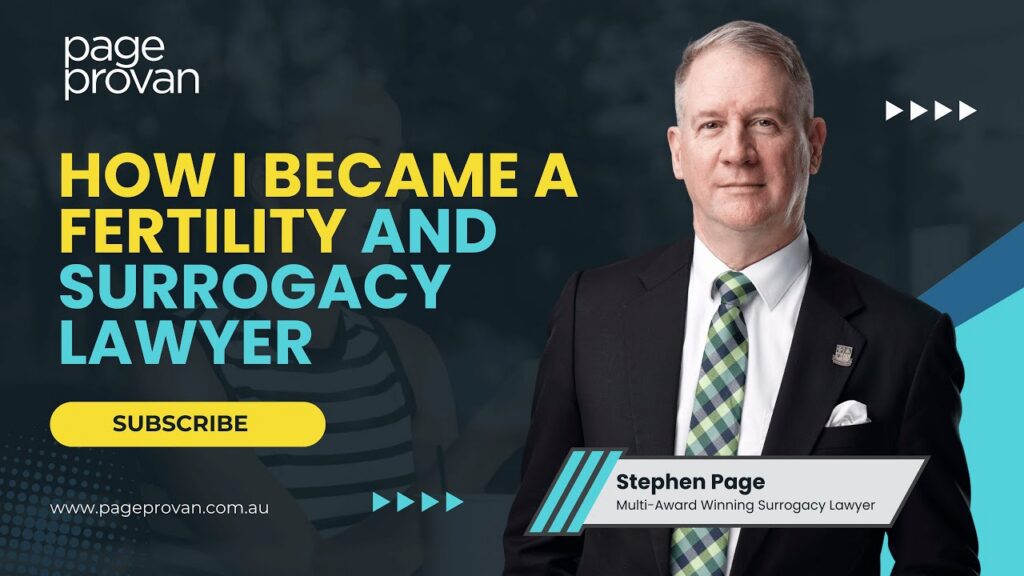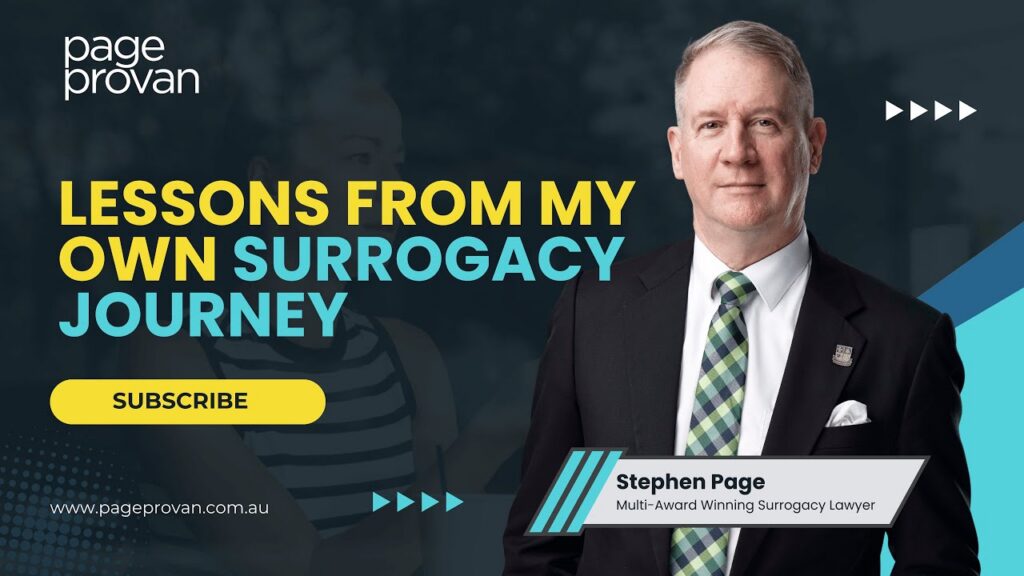Three Things to Focus On Following Separation
In this video, Page Provan Director and Accredited Family Law Specialist, Stephen Page talks about the three simple things to focus on following separation.
Transcript
G’day Stephen Page from Page Proven, Family and Fertility Lawyers. I want to talk to you today about three simple things to focus on when you break up, and these three simple things relate to your children.
The first is what I call the actuarial life tables. The Australian government produces these tables which show us how long we’re going to live and of course, we always think about it in the sense of, well I don’t want to die today, I know that I’m going to live however long. But going through a split when you’re arguing about children, it tends to be forgotten.
Because the reality is this, parenting doesn’t stop when your child turns six months old, or becomes a toddler, or goes to preschool, or goes to primary school or indeed goes to high school, or even when they turn 18 and become adults. Parenting stops only in a couple of circumstances.
You die, your child dies before you, which is the worst thing that can ever happen to a parent, or you lose your marbles, you have dementia, you lose capacity. So subject to those things, you will always be a parent, and guess what?
So will the other parent, and when you look at the actuarial life tables, that’s a long way off. If you’re 40, for example, and you’re a woman, you have another 48 years to live. If you’re a man, it’s 42 years. That’s a lot of parenting to get under your belt.
So it’s important when you’re a parent that you focus on the long term, and then that impacts on what you do today. That impacts on what behaviour you’re engaging in. Much as you’d like to tell the other parent where to go jump, and you may in fact, have done it, you may, in fact, have put it on Facebook to criticise them, please think again.
Words matter, behaviour matters, and the more that you put fuel in the fire, the more you can make it worse and when you’re thinking about you and your ex, well, they might have deserved it. But what’s going to be the impact on your children? Too often clients of mine say when they’re in a court case, well, it’s over when the court case is over. Now, I’m determined to get an order that says the kids live with me. I want to make sure that I have equal shared parental responsibility.
Well, the good news is that neither you nor your children die when the court case is over. The court case, of course, is designed for the long term, and the expectation is that when you go before a judge, that a judge has this wisdom that will stand you in good stead.
But the reality is this, of course, a judge does not live in your household. A judge only knows a little about you and your kids and your ex by what has been provided in court material and any reports and if you’ve given evidence, and if you’ve seen any TV show that deals with courtrooms, and even though most of them are American, they’re not Australian, you know that it’s an artificial environment.
It’s not raising your kids at home. Lawyers ask questions that they are required to ask, and some of them are really uncomfortable answers. So it’s really such an artificial environment. So the thinking that a judge, after seeing this artificial nature of you, not knowing you, then imposes an outcome, which often is critical of both parents, that at that stage, the court case is over, it ain’t. You parent after that date.
So focusing on the long term, focusing on making sure that conflict is reduced, that’s the kind of thing that you should be doing for your children, and as we say as our value statement, life enabled, life simplified. If you are focused on your children and enable them to grow and be independent, you will simplify your life dramatically.
Thank you.












